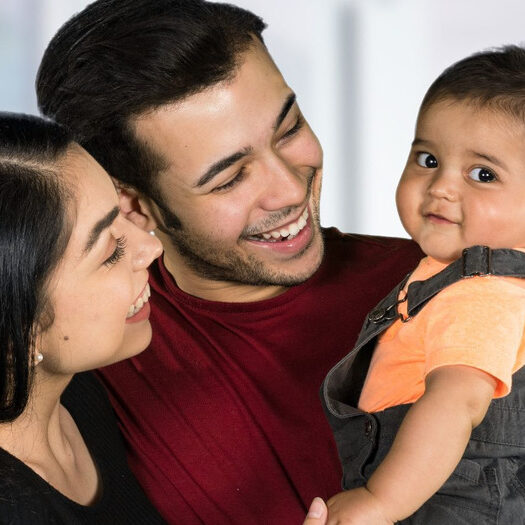
Recently, we published an article about how LifeWorks NW uses our Children’s Relief Nurseries to help families prevent child abuse and neglect. However, we also run a variety of other prevention services to help support families throughout the Portland metro area.
Marylee Stahl, senior program director of Prevention Services at LifeWorks NW, is passionate about the work that she does.
“These are important programs, and they work. We really give families the support they need and hook them into the resources they need to be successful.”
In Washington County, LifeWorks NW oversees the Healthy Families program. This program has a presence in every county in Oregon, run by different mental health agencies. Our program consists of two teams of Family Support specialists who work with families before a child reaches three months of age – sometimes even working with a family before a child is even born. Our specialists provide home visits, teach parents about child development, help them develop parenting skills and provide general support. This program is part of a national, evidence-based program through Healthy Families America and involves an intensive accreditation process for participating agencies.
“We work with families for three years,” says Marylee. “We help the parent attach and bond with their child in a positive way, to help make them the best parent they can be.”
We also participate in the Family Support and Connections program in Multnomah and Washington counties. As part of a statewide initiative, this program originally started in the late 1990s when researchers found that a large percentage of families involved with Child Protective Services (CPS) were also receiving funds through Temporary Assistance for Needy Families (TANF).
“We all know that when you don’t have the resources you need and you are not sure where your next meal is coming from or what’s going on, it’s hard to be a good parent,” Marylee explains. “So basically our job is to just support them and figure out what it is we can help with and what they need.”
Now, all families on TANF in Oregon are automatically offered support through Healthy Families. Staff for this program works out of the county’s Department of Human Services (DHS) office, collaborating with family coaches from TANF. This program offers intensive case management to help parents set goals and refer them to the resources they need to thrive. This might involve helping fill basic needs like finding food or clothing or developing a parent’s job skills. Unlike Healthy Families, this is a short-term program that typically offers support for three to six months. Recently, the Oregon legislature increased funding to the program, allowing LifeWorks NW to serve even more families.
“It’s going to become a really big program,” says Marylee. “We serve over 2,000 families and they are going to give us money to service over 7,000 families statewide. So the program will be tripling in the next few years, which is very exciting.”
In Multnomah County, we offer a similar service called the Family and Community Alliance. This program is funded by the Portland Children’s Levy. Referrals for this service come from a variety of sources, including DHS, child welfare services and members of the community. When a family is struggling, but the state has determined that the situation does not rise to the level of a CPS investigation, those parents will be referred to LifeWorks NW, where they can join our Active Parenting Program and participate in an evidence-based curriculum to help them better care for their children. Family Support and Connections originally began as part of FCA, so there is still significant overlap between the two.
Another service we offer is ongoing community education, including classes aimed at helping parents and helping them support their children through difficult stages in their lives. For example, grants from Washington County’s Strengthening Families program allow us to offer 7-week drug & alcohol prevention programs for adolescents, which they attend along with their parents. Referrals to this program come to us from schools and counselors, but we also advertise these classes so that parents can approach us directly.
“We used to host classes at middle schools, providing childcare for younger children and meals, and anyone could come,” Marylee says. “Obviously as the world has shifted with the pandemic, we’re doing everything virtually now and it took quite a while to get this going online. We had to redo a lot of the curriculum and try to figure it out because there are a lot of handouts and group activities.”
Though the shift has been challenging, the flexibility of being able to attend classes from home has been helpful for many busy parents.
“The participation has been awesome,” Marylee observes. “With the 10- to 14-year-olds I didn’t think it would go over well, but they seem to be really engaged online.”
Despite an industry-wide shortage of mental health workers during the pandemic, Marylee sees a bright future for LifeWorks NW’s prevention programs.
“Retention of staff in prevention services has been amazing,” she says. “Most people stay at least 4-6 years, and a couple of our managers have been here over 20 years. There’s a lot of longevity. Now that we’ve been asked to expand Family Support and Connections, our staff will increase quite a lot. I’m excited and a little nervous about what that’s going to look like.”


